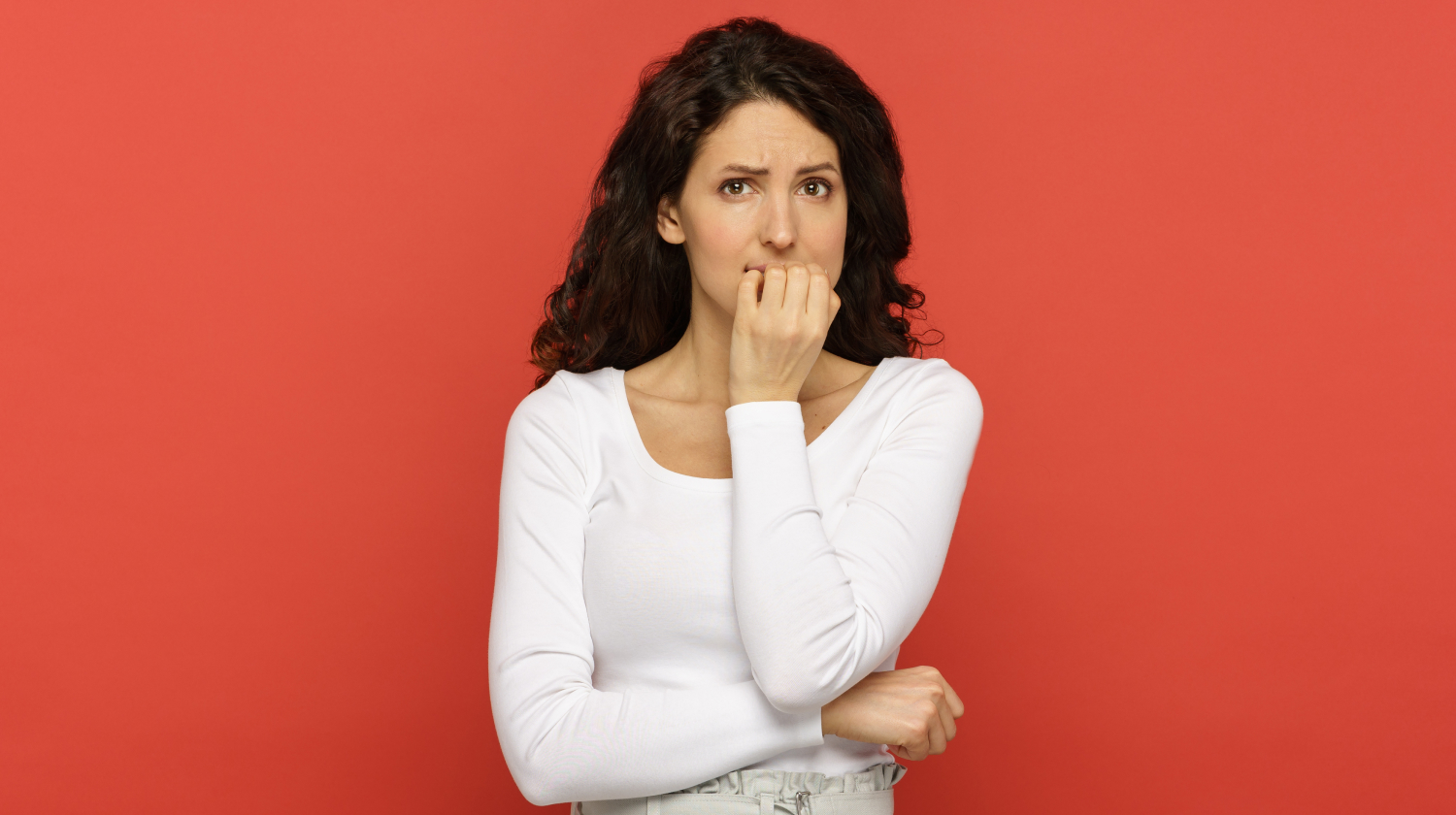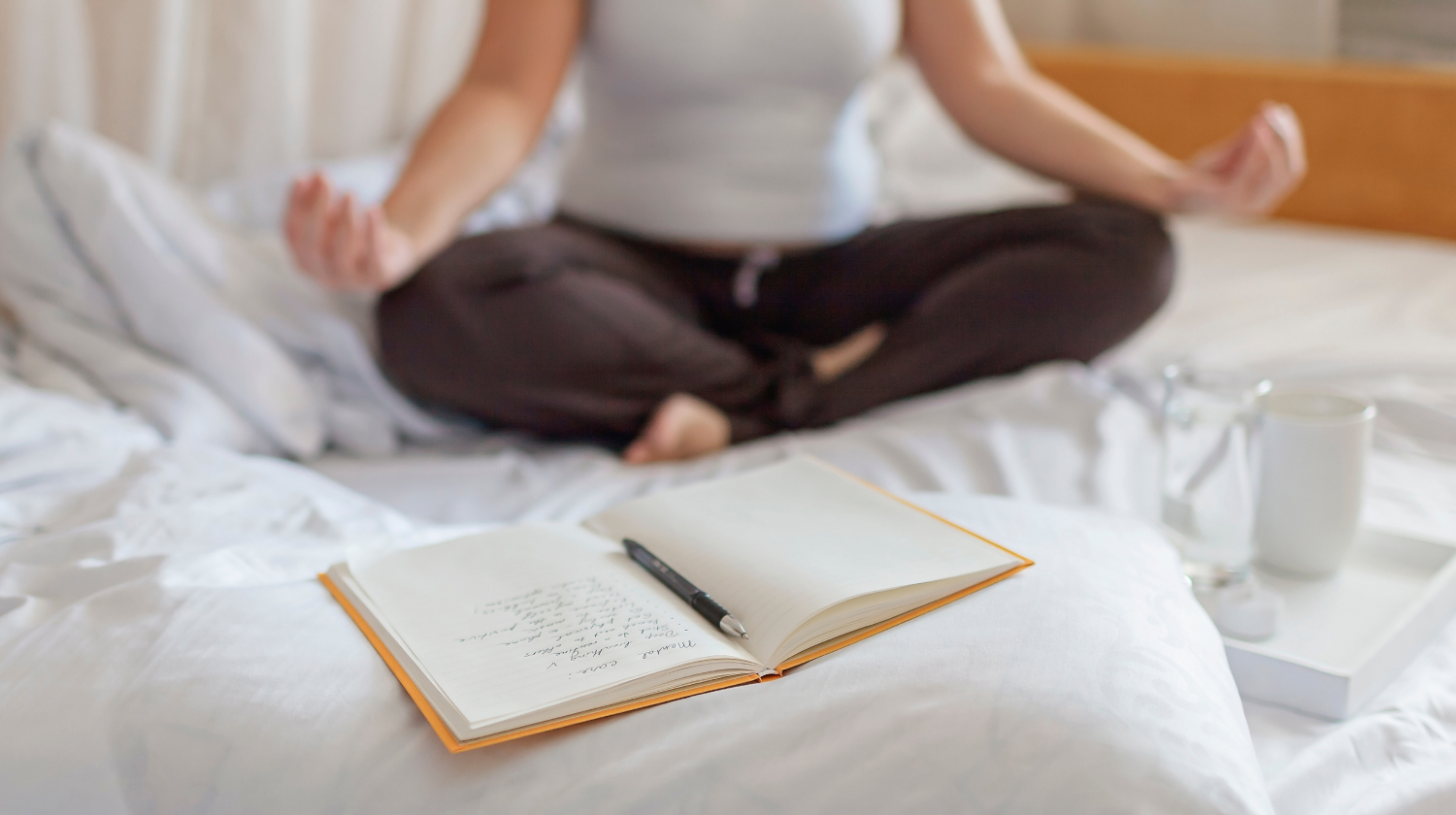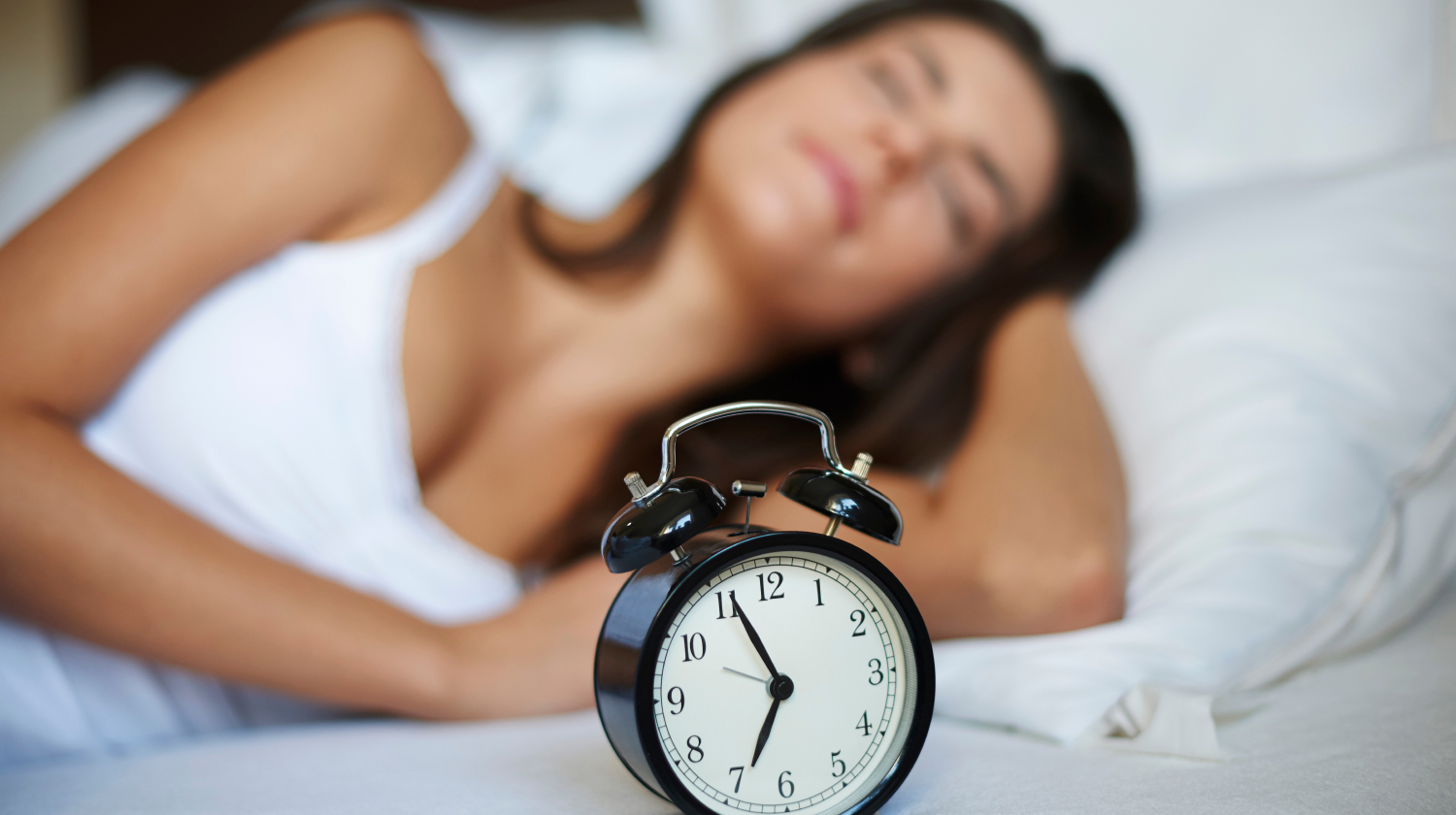Can Hormones Cause Anxiety? Here’s What Experts Say 2024

Many of us experience changes throughout our lives that go unnoticed or under the radar. We often need to recognize these changes as a phase or recognize the seriousness of their effects on our overall health. These changes may come in the form of weight gain, constipation, or excessive thirst, and they may all stem from internal changes related to a hormonal imbalance.[1]
As we explore the causes and symptoms related to hormonal imbalance, we might also consider how hormones affect our mental health. For example, can hormones cause anxiety? We should look beyond physical symptoms and consider potential emotional and mental manifestations, such as hormonal anxiety, to understand the relationship between hormones and anxiety best.
Here we will discuss remedies for anxiety that can support the nervous system and benefit the brain and body. Effective tools include meditation and mindfulness activities, time outdoors, and the consumption of herbs.
Can Hormone Imbalance Cause Anxiety?
Hormone imbalance can cause anxiety, and it often goes undetected for quite some time. Symptoms that can help you identify a hormone imbalance include mood swings, fatigue, and weight fluctuations. Hormone replacement therapy and cognitive behavioral therapy are common treatment methods; results certainly depend on the individual!
Hormonal Anxiety Symptoms
Worrying And Concentration Loss
One hallmark of hormonal anxiety is uncontrolled feelings of worry and panic. When a threat is registered, whether it’s real or perceived, you may go into anxiety overload and become preoccupied with the threat.
Consider that hormones affect anxiety[2] through chemical interactions, acting on the gut-brain axis. One major hormone, adrenaline, initiates the fight or flight response when you feel danger, resulting in heightened anxiety. Constant activation of this stress response can lead to enduring feelings of fear and anxiety, resulting in a lack of focus and crippling your daily activities.
Mood Swings
When hormone levels fluctuate, it can impair the efficiency of several biological processes, like mood and stress regulation. Unfortunately, a poor response to outside stressors can cause you to experience significant mood changes, such as extreme highs and lows. With impaired stress management and a decreased focus on what occurs around you, feelings of despair and irritability can develop.
Fatigue
It’s also important to consider the link between mental and physical health.[3] Disrupted concentration and mood swings can cause sleep disturbances and fatigue. Obsessive worries can prevent you from thinking soundly, relaxing, and getting adequate sleep.
Disturbed sleep and fluctuating moods can diminish your drive to do your daily tasks, and if this becomes more frequent and you lose the will to engage, you might see your physical health decline.
Weight Fluctuations
Unexplained weight loss or weight gain[4] often occurs in hormonal imbalances. This is usually seen in conditions marked by hormonal disturbances, like diabetes, menopause, or thyroid dysfunction. Hormones work to regulate blood sugar and growth, so chemical changes in metabolic reactions like fat storage can lead to excessive weight gain or sudden losses.
Regarding hormones and anxiety,[5] dopamine is a prominent neurohormone to monitor closely. It is linked to reward and motivation and is often dysregulated when there is an anxiety disorder[6] in place.
Which Hormones Cause Anxiety?
Stress Hormones
Changes in stress hormones[7] can cause anxiety due to alterations in the brain. As previously mentioned, stress hormones are part of the fight or flight cascade when the body detects threats. However, chronic stress and unbalanced hormones may cause the body to overreact.
Abnormal cortisol levels, a primary stress hormone, often underscore hormonal anxiety.[8] When there is constant exposure to cortisol, the efficiency of various bodily functions is interrupted, increasing the risk of anxiety, mood disorders, weight gain, and sleep disturbances.
Sex Hormones
The highs and lows of sex hormones, like testosterone and estradiol, over your lifespan, can also affect anxiety. Elevated levels promote brain plasticity and can alter intracellular signaling in the brain. Unfortunately, this neural plasticity also impacts what your body learns during high-stress situations, and as a result, stressful events can raise the likelihood of developing anxiety disorders.
Men are prone to experience increased or decreased testosterone levels, resulting in hormone-related anxiety, especially in erectile dysfunction or fertility troubles. However, hormonal anxiety is more commonly seen in women[9] due to changes across the life cycle, such as menstruation, pregnancy, and menopause.
You may wonder what hormones cause anxiety before a period, and the answer is progesterone and estradiol. These hormones are elevated in the luteal phase of a cycle 14 days before menstruation begins. Intense emotions, mood swings, and anxious feelings often characterize the luteal phase. Additionally, insulin use is altered during pregnancy, and oxytocin is released, which can contribute to heightened anxiety and irritable mood.
Estrogen levels, on the other hand, can be tricky because the pendulum of menstruation, pregnancy, and menopause can make it difficult to achieve optimal balance. But can too much estrogen cause anxiety? The answer depends on the individual’s reproductive stage and how dominant estrogen is compared to progesterone.
High estrogen levels can be protective against emotional disturbances, but if your estrogen far exceeds your progesterone levels, it can lead to low mood and anxiety. However, if an individual is going through menopause, low estrogen can cause anxiety,[10] mood swings, hot flashes, and disturbed sleep.
Thyroid Hormones
Issues with thyroid hormones[11] can result in anxiety, as well as feelings of fatigue and irritability. Hyperthyroidism, in which the thyroid is overactive, may contribute to the onset of anxiety and nervousness. Alternatively, hypothyroidism or an underactive thyroid may be linked to depression and fatigue.
Thyroid disease can be characterized by common hormone imbalance manifestations, like weight gain and menstrual changes.
How Can I Stop Hormonal Anxiety?
One way to alleviate hormone-related anxiety is through hormone replacement therapy. This is most often effective with thyroid dysfunction, as medicines can replace the missing hormones, thus reducing anxiety and mood disorders. Some research studies[12] have shown that taking synthetic or natural hormones to restore sex hormones during menopause can be beneficial for reducing depression and anxiety symptoms.
Additionally, cognitive behavioral therapy can be another effective option. Some might consider online therapy because it provides convenient resources in a safe, private setting. Certain platforms allow you to match with a therapist based on faith and specialty to best meet your personalized therapy needs.
Tips To Support Balanced Hormones & Reduce Anxiety
Counseling And Networking

In some cases, individuals diagnosed with hormonal anxiety may have already exhibited signs of generalized anxiety disorder, even before hormonal imbalances contributed to their condition. Therefore, it may help to log your thoughts and feelings in a journal. And when you’re ready, you may want to consider meeting with a counselor, seeking online therapy, or joining a support group.
Meditation

Furthermore, discussing your feelings and journaling can be a smooth transition into meditation and mindfulness activities. Addressing your fears and improving your concentration can help you overcome the hurdle of a blank mind or irrational thoughts. Increased engagement with your daily tasks can also help reduce your preoccupation with fear and worry.
Exercise

Yoga can be an effective and practical activity to include in your mindfulness efforts. Spend time meditating and stretching your body, as this can adequately restore your body and mind.
You can also increase the intensity of your exercise by going for walks or doing cardio. Weight maintenance helps protect against obesity, often linked to anxiety and low mood. According to the Physical Activity Guidelines for Americans,[13] the average healthy adult should aim for at least 150 minutes of moderate-intensity weekly activity.
Diet

Meeting our nutrition needs is essential as many nutrients supply neurotransmitters with the necessary components for adequate function. Including herbs, spices, and various fruits and vegetables in your healthy diet can provide anti-inflammatory nutrients and antioxidants that support hormonal balance.
For example, you can increase your intake of the nutrient vitamin D through sources like salmon to help control your dopamine levels. Additionally, you can increase your magnesium intake through sources like chia seeds and spinach to help calm the nervous system and prompt relaxation.
Sleep

Regarding sleep and hormone fluctuations, the main goal is to reset your circadian rhythm in order to balance your cortisol during the day and melatonin at night. It may help to set a consistent bedtime and sleep in a dark room. Try to avoid screen time a few hours before bed. Instead, consider engaging in relaxation exercises to reduce restlessness before sleeping.
Final Thought
Proper sleep, eating habits, and exercise can support the brain and help modulate hormones like insulin or dopamine. This can alleviate anxiety and reduce common comorbidities like weight issues and fatigue. Making healthy connections between your brain chemistry and body can help you find balance in your life and anxiety management!
+ 13 sources
Health Canal avoids using tertiary references. We have strict sourcing guidelines and rely on peer-reviewed studies, academic researches from medical associations and institutions. To ensure the accuracy of articles in Health Canal, you can read more about the editorial process here
- Cleveland Clinic. (2022). Hormonal Imbalance: Causes, Symptoms & Treatment. [online] Available at: https://my.clevelandclinic.org/health/diseases/22673-hormonal-imbalance
- Mittal, R., Debs, L.H., Patel, A.R., Nguyen, D., Patel, K.S., O’Connor, G., M’hamed Grati, Mittal, J., Yan, D., Eshraghi, A.A., Deo, S.K., Daunert, S. and Liu, X. (2017). Neurotransmitters: The Critical Modulators Regulating Gut–Brain Axis. [online] 232(9), pp.2359–2372. doi:https://doi.org/10.1002/jcp.25518.
- Mayo Clinic. (2017). Generalized anxiety disorder – Symptoms and causes. [online] Available at: https://www.mayoclinic.org/diseases-conditions/generalized-anxiety-disorder/symptoms-causes/syc-20360803
- Roop, J. (2018). HORMONE IMBALANCE-A CAUSE FOR CONCERN IN WOMEN. [online] doi:https://doi.org/10.26479/2018.0402.18.
- Cleveland Clinic. (2022). Dopamine: What It Is, Function & Symptoms. [online] Available at: https://my.clevelandclinic.org/health/articles/22581-dopamine
- Calipari, E.S. (2020). Dopamine Release in the Midbrain Promotes Anxiety. [online] doi:https://doi.org/10.1016/j.biopsych.2020.08.016.
- Merz, C.J. and Wolf, O.T. (2022). How stress hormones shape memories of fear and anxiety in humans. Neuroscience & Biobehavioral Reviews, 142, p.104901. doi:https://doi.org/10.1016/j.neubiorev.2022.104901.
- Mayo Clinic. (2021). Chronic stress puts your health at risk. [online] Available at: https://www.mayoclinic.org/healthy-lifestyle/stress-management/in-depth/stress/art-20046037
- National Institute of Mental Health (NIMH). (2017). Generalized Anxiety Disorder. [online] Available at: https://www.nimh.nih.gov/health/statistics/generalized-anxiety-disorder
- Brain (2019). Can Menopause Cause Anxiety, Depression or Panic Attacks? [online] Cleveland Clinic. Available at: https://health.clevelandclinic.org/is-menopause-causing-your-mood-swings-depression-or-anxiety/
- Mayo Clinic. (2022). Thyroid disease: How does it affect your mood? [online] Available at: https://www.mayoclinic.org/diseases-conditions/hyperthyroidism/expert-answers/thyroid-disease/faq-20058228
- Gordon, J., Rubinow, D.R., Eisenlohr-Moul, T.A., Xia, K., Schmidt, P. and Girdler, S.S. (2018). Efficacy of Transdermal Estradiol and Micronized Progesterone in the Prevention of Depressive Symptoms in the Menopause Transition. [online] 75(2), pp.149–149. doi:https://doi.org/10.1001/jamapsychiatry.2017.3998.
- U.S. Department of Health and Human Services (2018). Physical Activity Guidelines for Americans 2nd edition. [online] health.gov. Available at: https://health.gov/sites/default/files/2019-09/Physical_Activity_Guidelines_2nd_edition.pdf.



